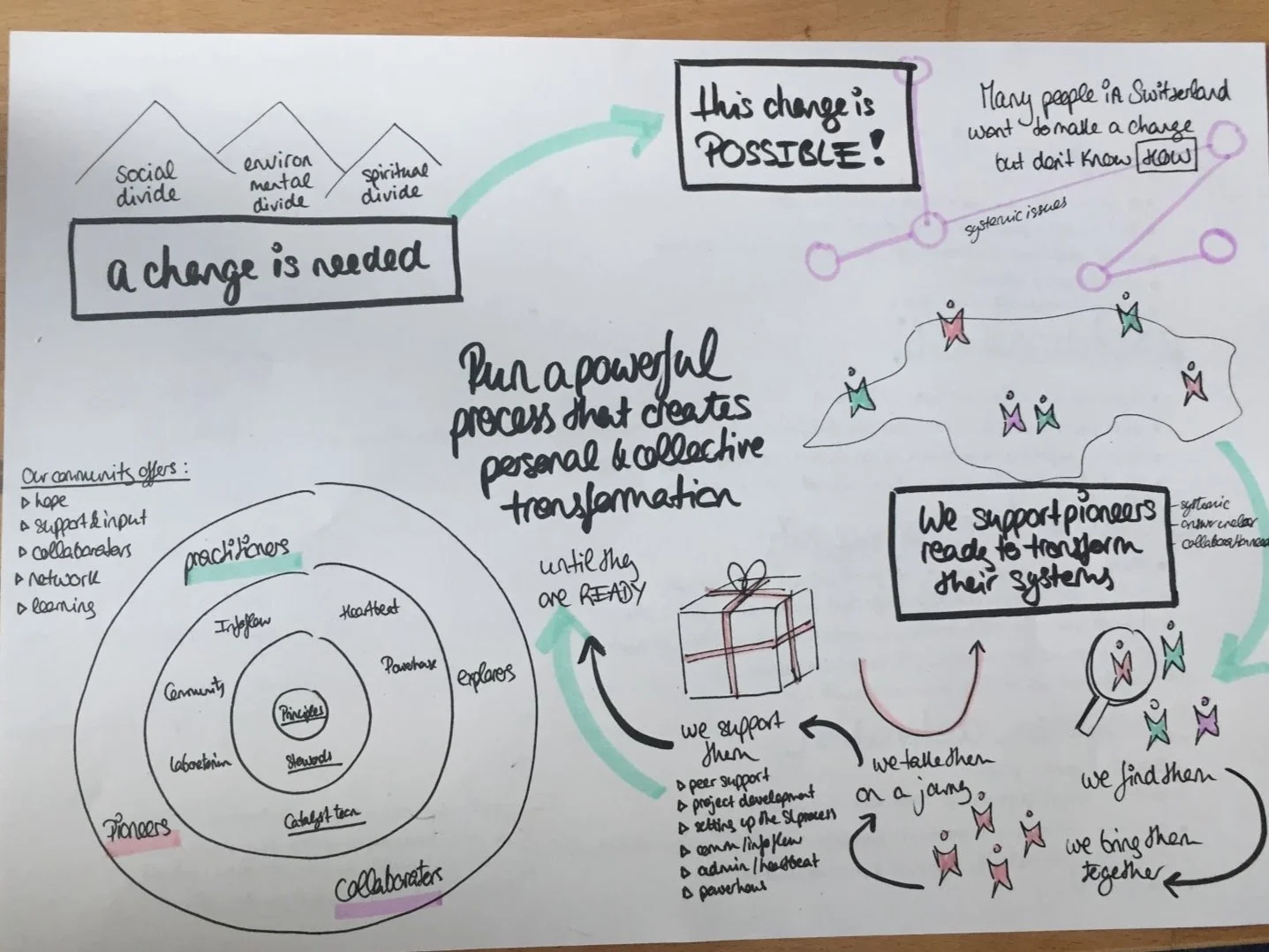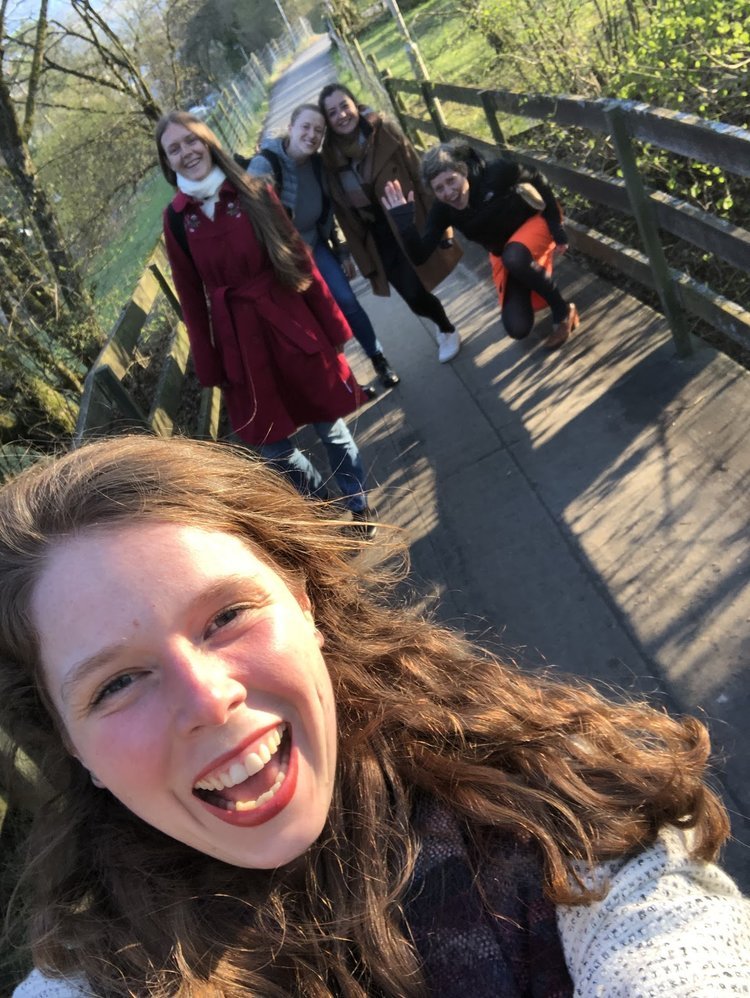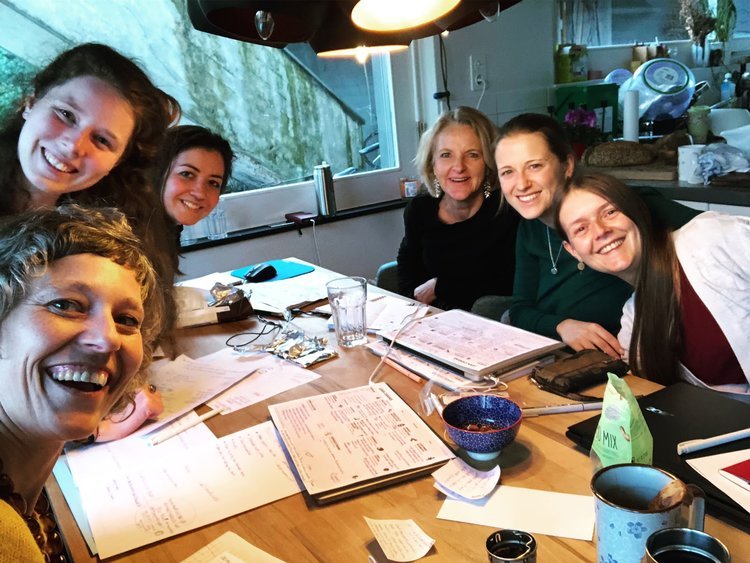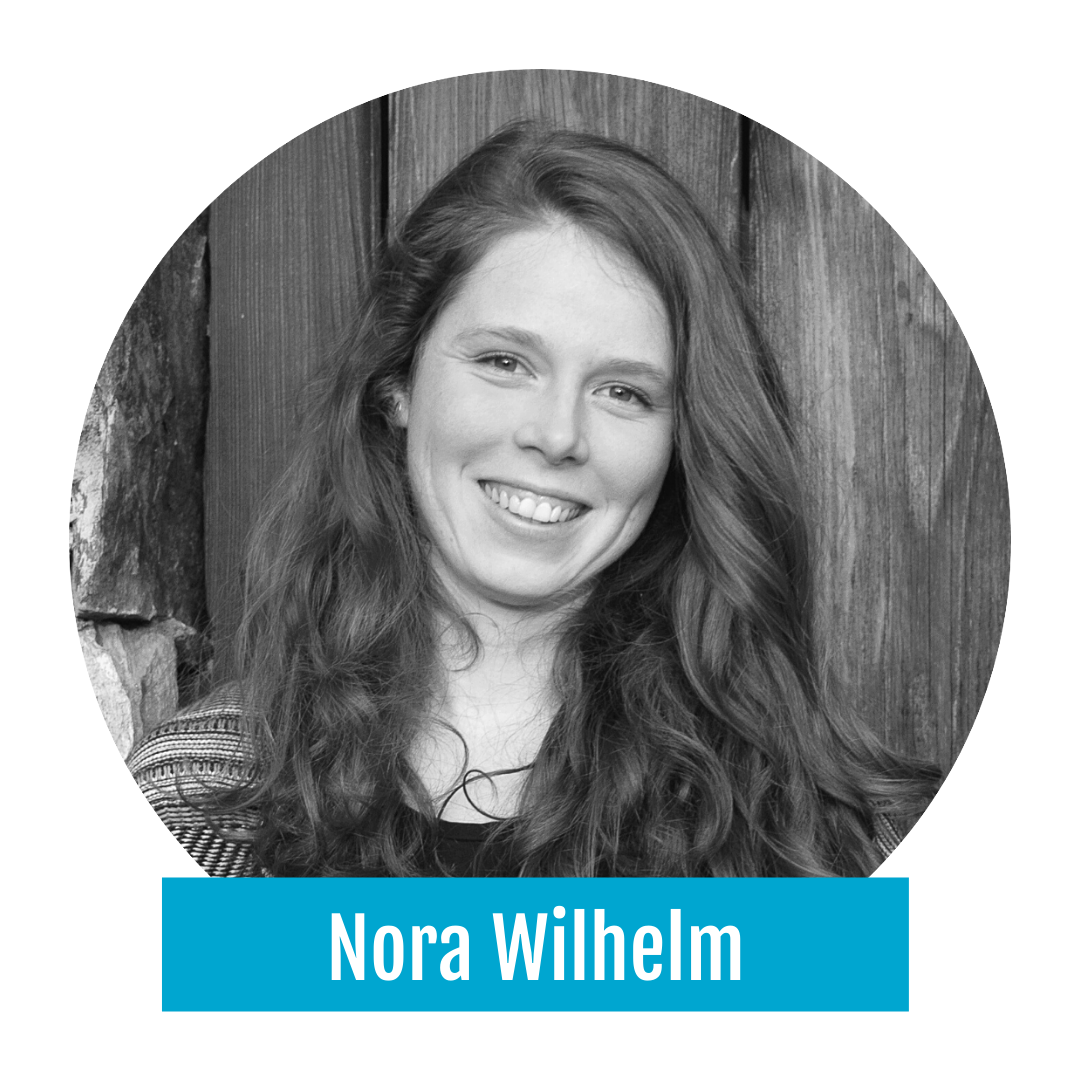Finding the lightbeam
How we came to our new Value Proposition
collaboratio helvetica was founded on the experience that more conscious collaboration is needed in order to properly deal with systemic challenges such as the ones contained in the Agenda 2030, and a hunch that a different kind of working together with unlikely allies was key. After two years of experimenting, we can now look back and see just how spot on this inquiry was, and how many winding paths we had to take to find out what it really takes to effectively do this work. In this blog, I will take you on a little trip down memory lane, highlight some of our key learnings and introduce you to the newly clarified value proposition we have co-created as a result.
Back to early 2017. The initiative, then called Collaboration Helvétique, was framed as a platform building on the Social Labs(1) approach to create sustainable solutions. And, truth be told, it all sounded nice, yet no one knew how, exactly, this could be done. It is not surprising, given that this is cutting-edge work, the kind which only few people in Switzerland ever got in touch with. So, we were all taking a big jump into the unknown. When the project launched, we packed our many ideas, educated guesses and wild hopes into our backpacks, and set off. Needless to say, even though we were aware that the process was in itself an experiment and learning journey, it definitely exceeded our expectations in the both lows and highs. We held three assumptions, that were proven both correct and incorrect in surprising ways.
First, we had an assumption that this work needs a community. Indeed, we could not imagine how change would ever become truly lasting if it was nothing more than the sum of single interventions in different contexts, without anything larger bringing it together.
Second, it was clear to us from previous work and research that change happens from the inside out. Meaning in this context that someone from a system or a region needs to call for a Social Lab, as opposed to an external entity coming in to “fix” what they see as someone else’s “problem”.
Third, we felt that we need to hold the Social Labs as diverse teams with different backgrounds and expertise. We couldn’t set out as a little isolated team without collaborating nor become a consulting firm that can just be called upon to “deliver” Social Labs - we envisioned to activate a network.
Therefore, we concluded that out of the community would sprout Social Labs. Specifically, our strategy was to build a community amongst which would be a solid number of people who are willing to change the system they are part of by taking the lead on their own Social Lab. We would only need to inform, inspire and then support these people and their Labs with our expertise, for example in design, facilitation, fundraising or communication.
With this approach, we met a lot of open questions, obstacles and “dead ends”. We prototyped several processes, such as a call (in Q2 2017) followed by a retreat or a series of sponsored Social Lab Retreats (starting Q4 2018). After the call in 2017, we had two Social Labs in the pipeline: one on Textile and one on Gender. Eventually, the different people and organisations who had been selected ended up backing for a number of reasons, ranging from internal changes to burn-out. As there was such positive feedback to the call for participants, we did off a Social Lab on Gender Equality (SDG5) - the Gender Lab - in collaboration with Nicole Schwab. It was a success in that it resulted in personal transformation of the participants, impact on their environments, learning about the topic and the deployment of four prototypes. Yet we did see that its impact could have been larger were it, as per our second assumption, strongly embedded in the system we are attempting to change. In 2018, we also collaborated with the Sustainable Living Lab at Impact Hub Lausanne, the Living Lab at EPFL and SDSN Switzerland to run the Beyond Waste - Circular Resources Lab. Hence we did realise Social Labs in collaboration with other stakeholders and diverse cohorts from all sectors with beautiful results. But we did not register enough Social Labs that were carried out in the respective eco.systems.
Yet, it took quite a lot of time to actually reach a point where we could reasonably pause and evaluate our work more thoroughly. Indeed, you can easily keep yourself busy with many things without ever noticing whether or not your doing is actually leading to the results you set out to do. That is also a systemic issue and part of our culture of funding and doing, but more about this in another upcoming blog as well. Finally in early 2019, on the occasion of the 2 year anniversary of collaboratio helvetica, we decided to go back to the drawing board. We got into it with the intention of reviewing what we had done, evaluate what worked and what didn’t, and be willing to let die what must die: Letting go of things is one of the key elements of work that is truly impactful. We dove in, trusting that through this process we would find our light beam, the one red thread that would cut across all levels and bring everything together to a coherent whole.
Photo by Scott Webb on Unsplash
So we did. We found that our assumptions were correct, yet inside of our community, we had several stops and starts with people interested in starting a Social Lab, for a number of different reasons. They can be summed up as follows:
Systemic innovation is, like described above, a newly emerging field. This means that only a few people from the get-go know about it, can conceptualise it and actually have the skills to pull it off - practically and content-wise.
A Social Lab in the way we understand it is a whole lot of work. It takes months if not years to prepare, the same to execute, and indefinite follow-up afterwards. One needs to be really - like, really - dedicated, and in it for the long run, with a committed team or circle. Such a timeline and amount of effort combined with the abstract and new nature of the work in itself seems to make it rather difficult for individuals to step forward and take it on.
Even though it was clear the team would support people who took on this challenge, it was difficult to pin down what exactly was the give and get with this emerging work. As we prototyped collaboration within a community as opposed to traditional employee/employer relationships, we had to learn a considerable amount about the future of work - but more about this in another blog.
Hence, we learned from our different experiments and trials and errors that our approach could be further refined. Through this process, we have identified major gaps that we otherwise would not have stumbled upon, and are now in position to attempt closing. We found that those people - let’s call them Catalysts - who are embedded in a system and have the drive and vision needed to transform it (say, with a Social Lab), often do not have access to systemic thinking or knowledge about what a Social Lab is. Therefore, as they grow increasingly frustrated in the career they chose to make a difference upon meeting all the barriers of their system, the pathway of attempting to change this system is not available to them. Further, they often lack the support and community to succeed in their endeavours.
This is why we will launch the Catalyst Lab, a 9 month in-depth learning process in service of committed individuals and their teams, who are eager and ready to contribute to the implementation of the Agenda 2030 in Switzerland by creating systemic change in their local or sectoral contexts. We will open a nation-wide call, after which 20 carefully selected Catalysts participate in the Catalyst Lab, receiving an experience-based training, cutting-edge knowledge and tools as well as support from peers and transformative change professionals. In short, the aim is to provide them with all they need to launch highly impactful Social Labs that make a contribution to the co-creation of the sustainable, human and collaborative Switzerland we want to live in.
But we offer the Catalysts even more: Collaboration in a community that functions according to a different paradigm than the dominant linear, control and command systems. There, we together develop the required tools, skills, spaces and attitudes needed to ensure a regenerative community to which the Catalysts and anyone engaging with their Labs can always come back to, in order to share their insights and questions, get feedback and support and be part of a learning ecosystem. Within this community the people whose purpose it is to hold space for transformational processes such as Social Labs train together and ready themselves for the ambitious work ahead.
To summarise, this is what we came up with: collaboratio helvetica catalyses systemic change in Switzerland by supporting those who take the lead anchored and in relation with their respective ecosystem, by cultivating a collaborative community and ensuring a coherent and awareness-based practice throughout. We have confirmed the convictions that were the foundation of collaboratio, but have refined how we go about reaching our vision based on what we learned along the way. In a sense, we have aligned all we do to what creates the most impact, our lightbeam that centers and grounds everything. collaboratio helvetica envisions to hold space for a new mindset as captured by our principles to be lived, together. The future we want to see, practiced to the best of our abilities in the now. The last two years feel both very short and like an eternity, and there is a lot to celebrate and be proud of. With this fundament, a strong team and community collectively holding this lightbeam, we will now realise even grander things in the two years to come. We hope to meet you on the way!
(1) Social Labs bring together a diverse group of stakeholders not to create yet more five-year plans but to develop a portfolio of prototype solutions, test those solutions in the real world, use the data to further refine them, and test them again. Their orientation is systemic—they are designed to go beyond dealing with symptoms and parts to get at the root cause of why things are not working.
Nora Wilhelm is the Co-Founder and Catalyst of collaboratio helvetica. She has a background in youth engagement and active citizenship (European Youth Parliament) and specialised in collaboration, self-organisation, ecosystem leadership, systemic change and social innovation. Beyond facilitating multi-stakeholder processes and social innovation labs as well as promoting the Sustainable Development Goals (SDGs), she is a renowned young leader, advocate and speaker, recognised for her work by the Swiss government, UNESCO, Forbes 30 under 30 and other institutions.






